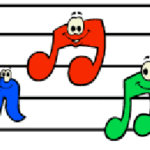 Researchers at the University of Jyvaskyla, in Finland, studied the benefits of music therapy when added to standard care among working-age people with depression.
Researchers at the University of Jyvaskyla, in Finland, studied the benefits of music therapy when added to standard care among working-age people with depression.
First, the details.
- 79 people with an ICD-10 diagnosis of depression were randomly assigned to a treatment group.
- Individual music therapy + standard care (20 bi-weekly sessions)
- Standard care only
- Changes in depression, anxiety, general functioning, quality of life, and alexithymia (inability to identify or describe emotions) were recorded at 3 and 6 months.
And, the results.
- Participants receiving music therapy + standard care showed greater improvement than those receiving standard care in depression symptoms and general functioning at the 3-month follow-up.
- The response rate was significantly higher for the music therapy + standard care group compared to the standard care only group.
The bottom line?
The authors concluded, “Individual music therapy combined with standard care is effective for depression among working-age people with depression.”
Recently published studies that support these findings include the following.
- Among elderly depressed patients
- Researchers at the National University of Singapore reported, “there were statistically significant reductions in geriatric depression scores and sleep quality at week 4.”
- In older people with dementia
- Researchers at Griffith University, in Nathan, Australia, reported that more than half of those in the music group reported improvements in self-esteem over time.
- In patients with Alzheimer’s type depression,
- Researchers at Inserm, in Montpellier, France, reported significant improvements in anxiety and depression in the music therapy group from week 4 and until week 16.
- Furthermore, the effect of music therapy was sustained up to 8 weeks after discontinuation of sessions between weeks 16 and 24.
- Researchers at Inserm, in Montpellier, France, reported significant improvements in anxiety and depression in the music therapy group from week 4 and until week 16.
4/16/11 18:14 JR